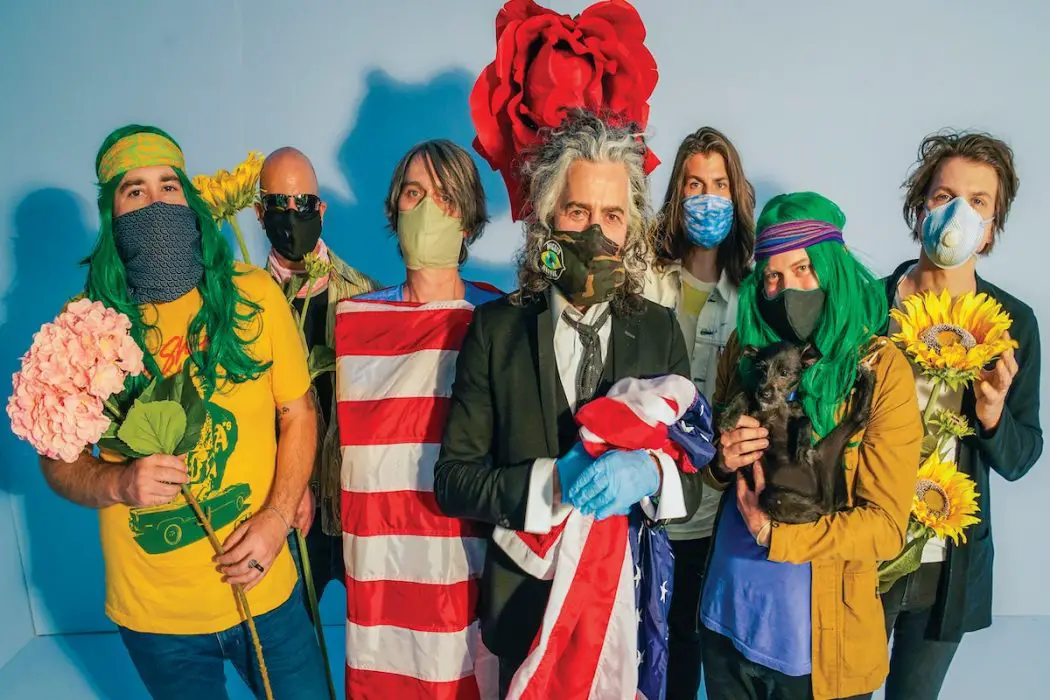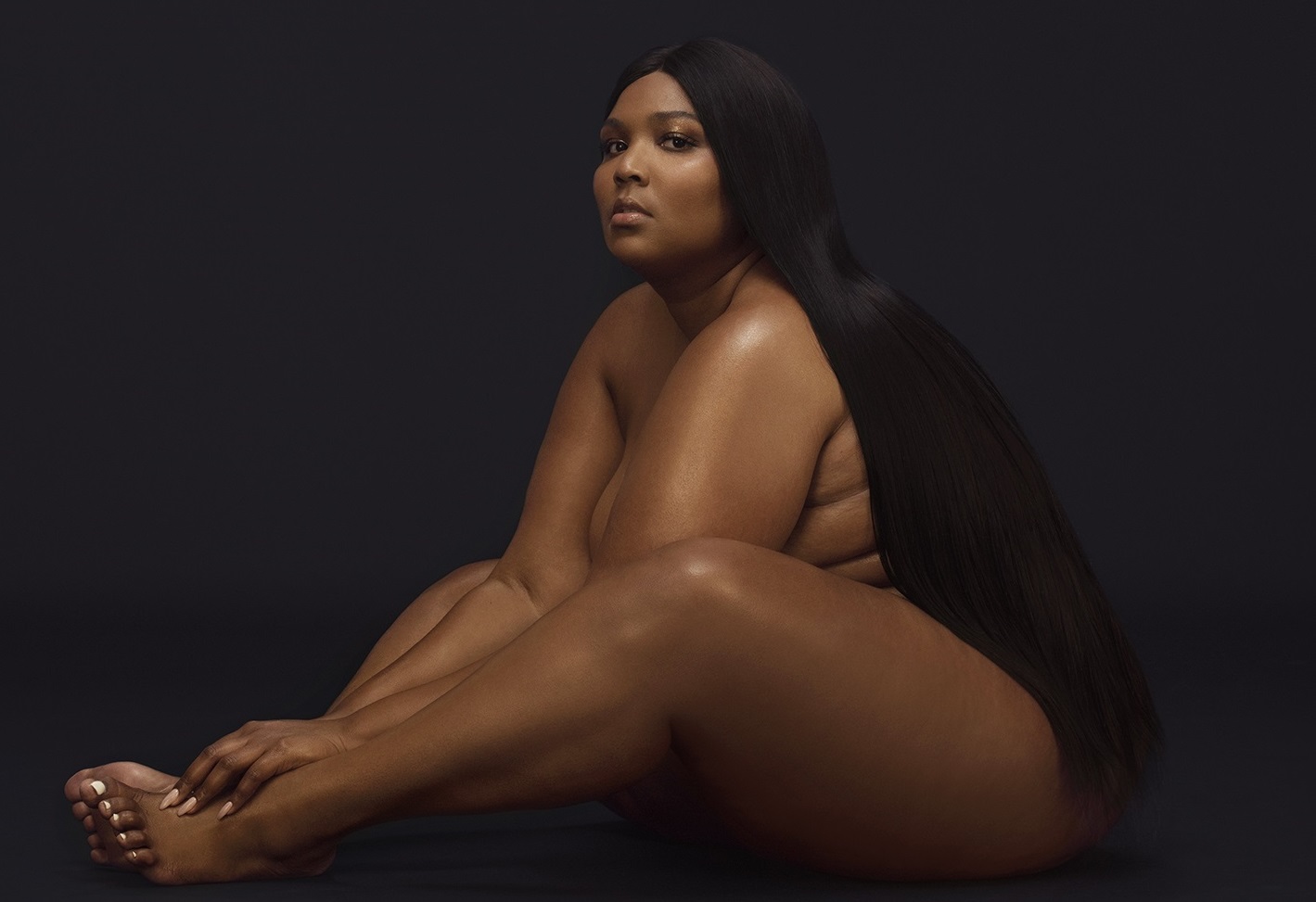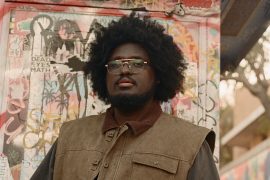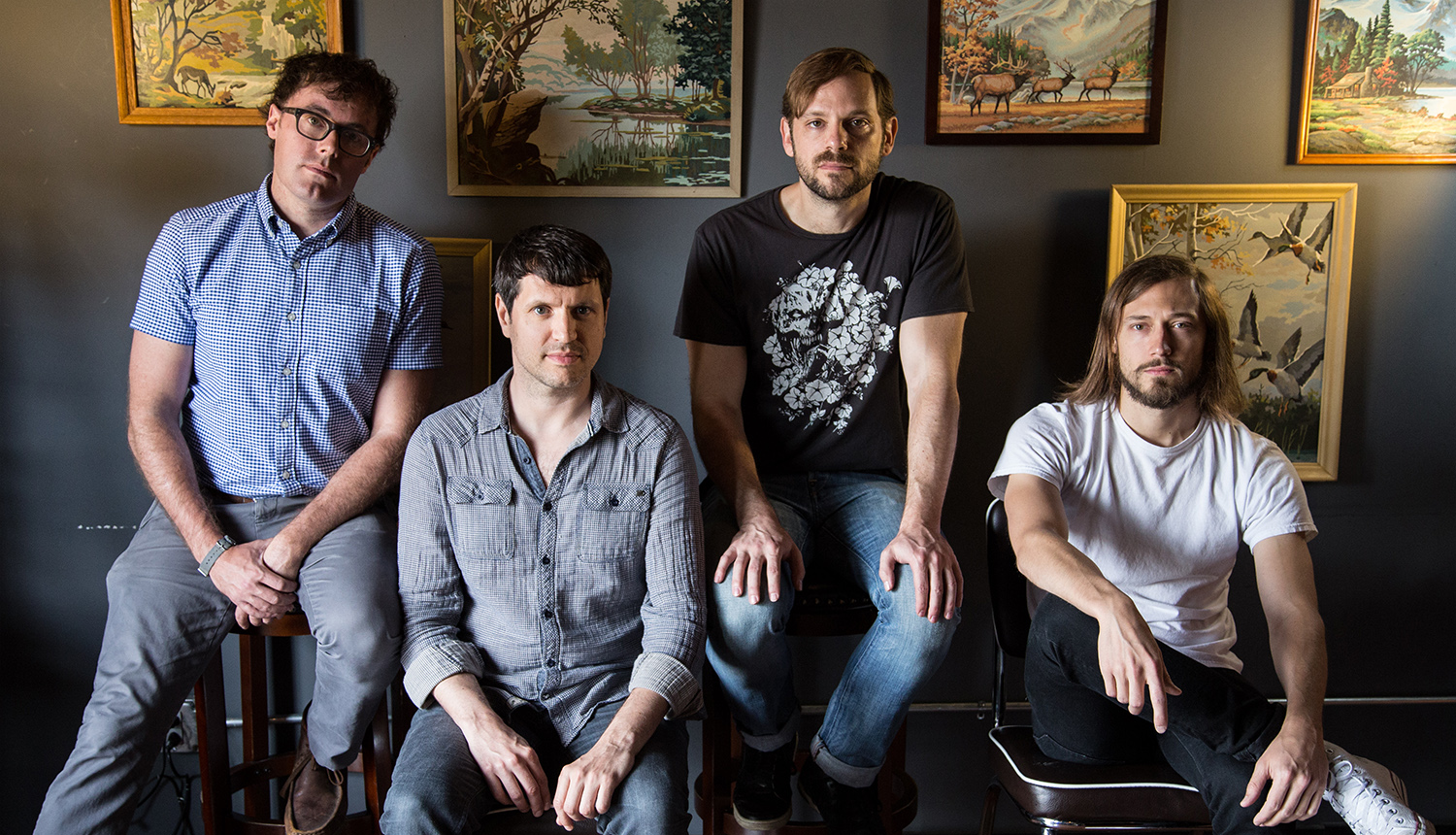Wayne Coyne, leader of Oklahoma psych-rock outfit The Flaming Lips, dives into their new record ‘American Head’, an exhaustive meditation that covers the full spectrum of our lived humanity.
“Assassins of Youth” (live) – The Flaming Lips
I’m not necessarily proud of this, but I’m just a creative weirdo.
I’m sitting in my house by the phone one Friday night, thrice-revised list of questions in hand, anxiously waiting to speak with Wayne Coyne, lead vocalist and frontman of hallowed psychedelic rock band-for-the-ages The Flaming Lips. I’ve pored over every interview he’s given on the virtual press tour for The Flaming Lips’ latest album, American Head, and am not entirely sure what to expect. His reputation precedes him as a timeless artist and elder statesman of indie rock who possesses a bit of elusive, shaman-like mystery, an intangible quality that seems both prophetic and slightly intimidating to those who have the privilege of experiencing it, and I’m worried I may have difficulty capturing his true essence.
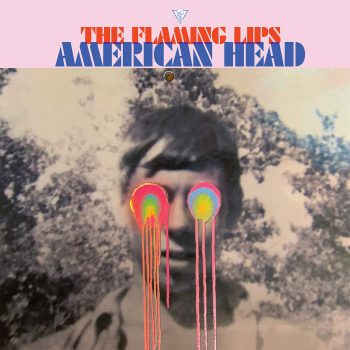
To my surprise, I’m patched through and greeted warmly by the welcoming voice of a humble midwesterner, who’s sitting in the driveway outside his Oklahoma residence and describing to me the brilliant sunset he’s been observing. While we exchange pleasantries and I begin to reconcile this personality on the other side of the phone, I’m once again overcome by the nagging feeling that the total essence of this person is eluding me. I wonder which side of Coyne I’m encountering at the moment and which sides of him I may encounter throughout the interview. The affable Oklahoma family man? The heady former stoner with a staggeringly creative mind and finely-tuned emotional intellect? The daring conceptualist behind some of popular music’s most confounding and influential works? The next thirty minutes will make it abundantly clear, as Coyne is all of those things and more.
Whether he’s embodying a normal guy, an informal philosopher, a dizzying rock iconoclast or an omniscient poet, Wayne Coyne is one of the most captivating figures in music today. He’s impervious to any singular categorization or pigeonhole and he appears to prefer it that way, at one point saying, “I’m not necessarily proud of this, but I’m just a creative weirdo.” That’s most likely true even in its pure humility, but Coyne himself doesn’t realize what he represents to legions of fans across the world and the overarching legacy of music itself.
Coyne’s empathetic, down-to-earth, yet enigmatic nature has been a driving force behind The Flaming Lips’ one-of-a-kind artistic roadmap for the better part of four decades. Their work, while reflecting several genres and moods over their career, is marked by a very personalized human touch that gets lost in translation with other bands, who opt for distance between themselves and their audience. The Flaming Lips’ music is an extension of their own lives and the two cannot be separated; they look to be the direct conduit to a listener’s deeply lived emotions and spiritual lifeblood, thereby familiarizing themselves with their fanbase on an unprecedented level.
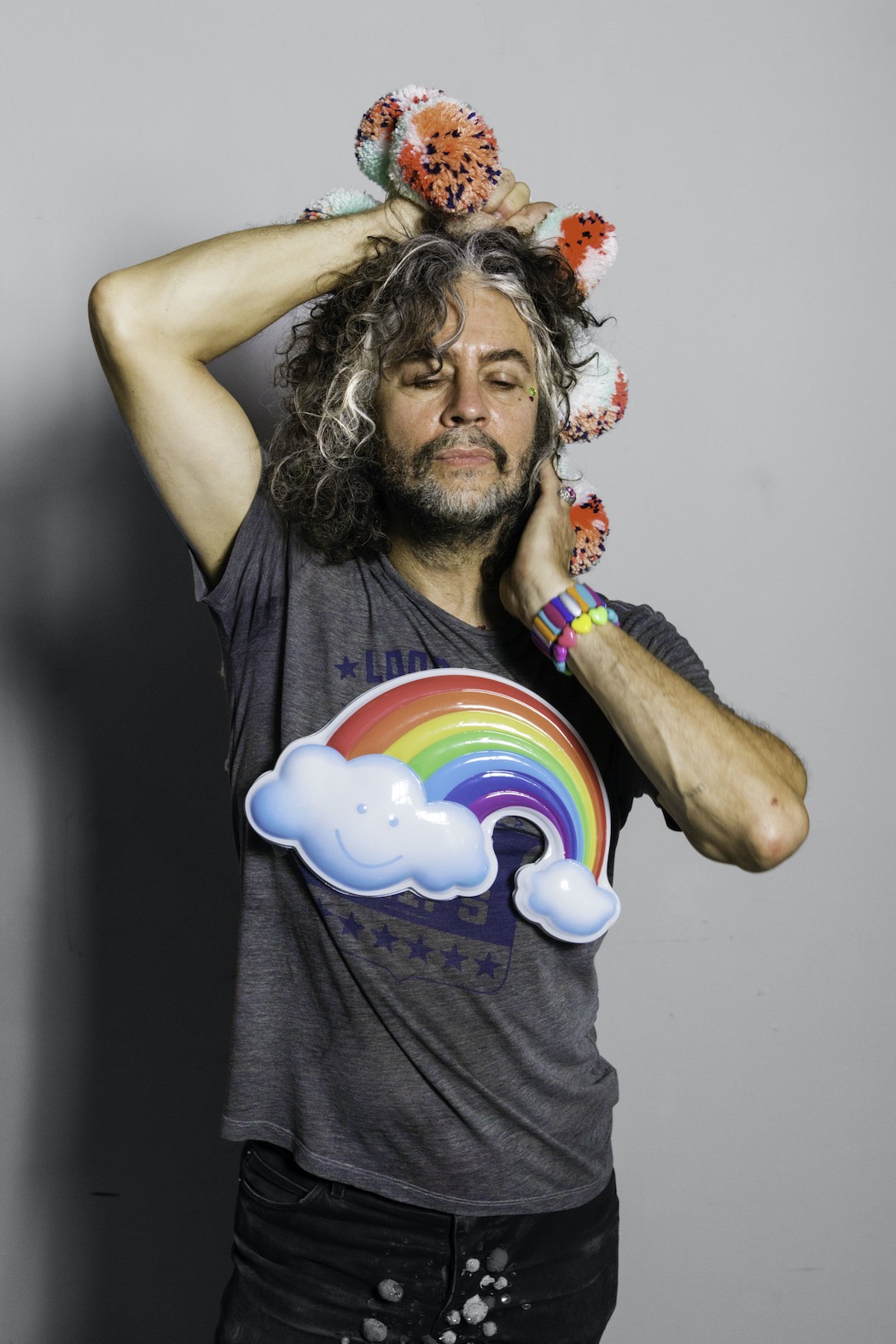
For me, I always say The Flaming Lips, we’re doing exactly what we want to do in that time, and no one stops us.
Formed in 1983, The Flaming Lips have released sixteen studio albums in their storied career, and to say they’ve gone down most stylistic avenues at least once in their history would be the understatement of the century. Through their supremely humanistic and, at times, atypical view of the world and the contemporary state of music, they’ve created records like Zaireeka (1997), a scatterbrained noise rock experiment full of nods to science fiction, urban legends, and their extremely nuanced observations on the human condition through improbable fictional scenarios. Zaireeka was meant to challenge the norms of recorded music, as The Flaming Lips’ recorded it with the intention of having listeners play it on four different turntables and home sound systems at once, which the band accomplished themselves on their accompanying tour.
The following record, The Soft Bulletin (1999), considered their magnum opus and launching point for their current musical identity, is a baroque pop masterwork that focuses solely on the band’s personal heartaches and introduces Coyne’s empathetic first-person narration that he’s become known for.
That’s what music is telling you, that you’re a human and it’s great, but it’s got problems, you’re gonna die, and you have to deal with that…you can do it, don’t give up.
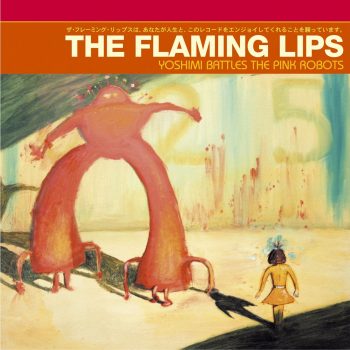
Not content with merely resting on their laurels, their next album, Yoshimi Battles The Pink Robots (2002) takes on the grandiose topics of mortality and existence behind the thin guise of a futuristic soap opera. Coyne has claimed it’s not a concept album, and it’s clear the story is simply a means to convey his anxieties on these topics, yet the overall-risk taking and boundary-breaking displayed on that record was basically uncharted in popular music at the time.
The album’s lead single and arguably The Flaming Lips’ most cherished song, “Do You Realize??”, is the most starkly straightforward song about mortality ever released, famous for its line, “Do you realize that everyone you know will someday die?”
The Flaming Lips have always marched to the beat of their own drum, and their ability to bring uncomfortable topics out in the open in a way that’s proactive and healing remains unmatched by any other band.
The combination of dreamy, personalized music that feels tailored to each individual listener and the difficult subject matter taken on is akin to a therapy session in musical form, a chance to heal old wounds and search for new beginnings.
I think that’s what The Flaming Lips’ music is, when it’s at its most powerful: I think it’s there with you in those times, in times when there’s nothing you can do about how bad things are right now.
Eighteen years later, The Flaming Lips have since released more critically acclaimed albums that are similarly rife with experimentation and soul-searching, with their most recent album, American Head (2020), taking a look at issues both previously examined and rediscovered, such as mortality, the suffering of loved ones, and the function of religion in the secularized world. Now in their late middle-age, Coyne and multi-faceted longstanding member Steven Drozd look back on their childhoods and the cause and effect nature of their lives up to this point. Having experienced relentless misfortune for many years, the record takes a veiled dive into Drozd’s battle with substance abuse and echoes the band’s up and down relationship with success over the years. Being able to look back now after so many years, the record is given an added dimension now that Coyne is a first time father, giving him fresh perspective on what it means to be alive. Fittingly yet somewhat unintentionally, American Head expertly fits our time in this pandemic as the music is a wonderful escape, but the lyrical content pushes us inward and also forces us to grasp the daily presence of our own mortality, as well as the wise tenet of being grateful for one’s own life regardless of current circumstances.
Wayne Coyne spoke with me about these topics and how they tie into the new release and his personal life. Speaking with Coyne revealed his most vital quality, that which I believe has contributed greatly to his band’s music becoming so beloved through the years; he is truly a sensitive person with a keen understanding of the human condition. He cares deeply about the world around him and seems to feel the suffering of others as his own, and The Flaming Lips’ body of work is special as a result.
Take a look at the full interview below, and see for yourself what makes Wayne Coyne and The Flaming Lips musical visionaries and artists for all time.
— —
:: stream/purchase American Head here ::
Stream: ‘American Head’ – The Flaming Lips
A CONVERSATION WITH THE FLAMING LIPS
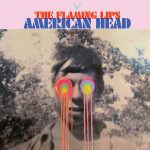
Atwood Magazine: Hi, Wayne. How are you?
Wayne Coyne: I’m doing good. I’m sitting in my car, in my driveway in my house in the city and it’s a beautiful autumn sunset here. Oh my god, how beautiful the sunsets can be.
Oh, awesome. So these last eight months have been kind of a roller coaster. I saw in the last couple years or so you've been remarried and you've had your first child, congratulations on that by the way. That's awesome.
Wayne Coyne: Thank you.
Of course. How has the unique combination of new parenthood and a pandemic been treating you?
Wayne Coyne: That’s a good question. I think I probably over-worry, when times are really good, I still worry a little bit. I don’t know why. I think it probably suits me that there are actual real things to worry about, because then I’m not just worrying for nothing. So, I think being able to help people, I mean, Katie and I are very lucky that we’re really healthy and we’re not absolutely devastated by not having any work right now, we’re doing all right, and so in that way, I think it kind of suits us to be a little bit more serious and a little bit more concerned about our fellow man. So I think in most ways, it’s been wonderful and being able to spend this time at home and getting a routine of being at home, which we have never done really before, and not having any choices, I think that part of it is kind of relaxing because sometimes you’re sitting there at eight o’clock on a Saturday night, and you’re like, “What do we do?”, well, you can’t do anything. So you just have to sit at home and eat food and watch TV, and you’re like, “Okay, you know, it’s not that bad”. So you know, that part of it. But I don’t want to make light of it, there are families that are really suffering, and there are people that are devastated by not being able to work. It’s all around us for sure.
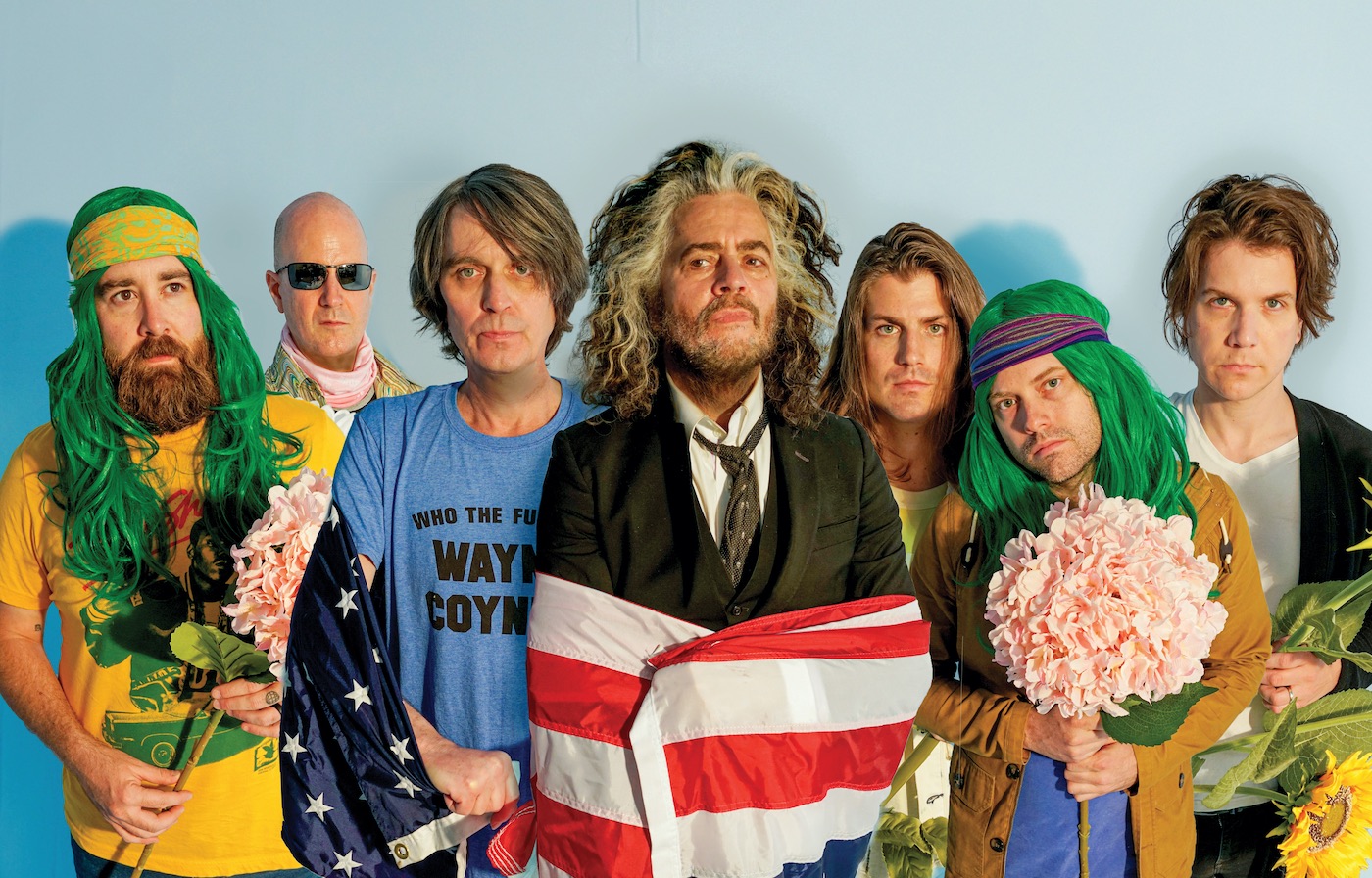
Has becoming a father changed how you view the world as an artist and an individual?
Wayne Coyne: I’m sure it has, I guess it’s still new to me. And there are still moments every couple of weeks where I go, “Oh, my gosh, we have a baby”, but I think as you go along you start to have a different gauge of what’s important in your life and what isn’t. We’ve only had a few moments where our little baby was sick or something, it’s been very brief, but suddenly your whole world doesn’t matter at all, and that’s when that happens. Suddenly this little baby and the way he feels is the only thing that matters, and so this is probably a little bit of a rebalance of what really is important. But what is even better than that is knowing what’s not important, because I think you can easily get caught up in everything having an equal kind of importance, but I think having a child and having to defend your time; how are you going to get your things done in the time that you have, the energy you have, and with the amount of sleep that you have, all those things? I think it is changing, and I think I probably have less tolerance for people who don’t want to just get down and do the work, show up on time, do our work. But that’s pretty much to be polite to each other. I probably have less tolerance for that.
I just have to say, I love this new record American Head – I think it's fantastic. And although it was finished right before the pandemic struck, it seems to truly resonate with our collective experience right now. How have you guys felt about the timing of the release and the response to the album?
Wayne Coyne: Well thank you for saying that. That’s a great, great thing to hear. In the very beginning, I think it was slated to come out in June, and so when this hit in the middle of March, I think we were very relieved in March and April and May that we didn’t have anything because we felt embarrassed at first that we would be promoting a record or even thinking about a record, so we quickly moved it. I think it got moved maybe two or three times before we settled on the September date, but even that would have moved if it seemed like it wasn’t a good time for it. So in the beginning, I think we would have been very embarrassed and not known what to do but as it went along, it did feel like by the time we started to put out the first song and the first video that we felt we can entertain ourselves again. For the first month or so I don’t think you could watch anything except the headline news, like, “What the fuck is happening?”, but after you do that for a little while, there’s no news. It’s just now we’re living in it, so I think after three or four months we felt relieved that we had a record.
I think we were kind of releasing it a song at a time, so we were getting feedback as it went, and it did seem like the songs that we were putting out in the time that we put them out seemed to have a good effect. There was some kind of comfort, some kind of warmth, some kind of truth, that you could say, “Hey, I understand this”, so that part of it we couldn’t have predicted or made on purpose, you just simply make songs in the way that you feel, and it does always go out into the world in a time. Time sometimes works with it, and sometimes it doesn’t, and sometimes it’s indifferent, but I definitely think this type of atmosphere is perfect for that type of music that’s on American Head. It’s introspective, it’s personal stories, and you can feel it very easily; it’s not abstract. So I think in that way, I can totally relate to this air of anxiety and this air of worry and this air of concern for each other, how music like this helps that; it feels like this type of music. I think that’s wonderful, it wouldn’t be anything that we could have predicted or controlled. I think it’s wonderful that it’s happened.
You can't foresee something like that, but it's got to be a blessing to feel like maybe this can really help people through this time when they're struggling, it can help them look inward a bit. That's got to feel really good to you guys.
Wayne Coyne: Yeah, and the songs can be about something very specific. And it could be about the Flaming Lips, but there is a sound and a certain chord structure on these types of melodies that really are universal in that way. They’re emotional, and they’re about struggling, but they’re also about being forgiving and being gentle. There’s a lot of stuff there that’s a universal sort of language, even if you’re not listening to every word that I say, I think you still get this feeling from it. So in that way, I think it’s really, really wonderful. I would have hoped that people would like it even if there wasn’t a pandemic, but I can see within this time of worry that music like this is like comfort food. It’s something slightly familiar, something that you can trust.
What's the key at this point in your career to creating original music that excites and fulfills you guys just like it did more than three decades ago when you made your debut?
Wayne Coyne: I think it does even more now only because the more experience you have, the more you know, the more you get to do stuff that you like and avoid the stuff you don’t like, work with people that you love and not have to work with people that you don’t love. As you go, you get a little bit more of the luxuries of knowing what you want, knowing how to do it. And this ability to make a song, write songs and produce them, all the stuff that it takes, you really do have to do it a lot to figure out the little nuances of how to make it all work. We work at it all the time, so that part of it, you wouldn’t do it unless you loved it. So I say it’s work, but I have a studio at my house, and I have a painting studio that I paint in. I’m not necessarily proud of this, but I’m just a creative weirdo, and I just like creating stuff. So that part of it, the more I think of things to create, the better it makes everybody’s life, not just my own, so that plays into my agenda.
The more you do it, the more you just feel more comfortable with it, the more people help you do it. Yeah, the things that come along with it. I think when everybody’s young there’s just so many insecurities, the slightest thing can make you just have lots of regret and anxiety, so as you get older, some of those things you’ve already sorted out. You don’t really worry about what everybody thinks so much, you know your zone that you like and you don’t really worry that much. Some people might hate you, which, there’s plenty of people that want to hate you. So yeah, just don’t worry about it so much.
Yeah, that's good advice. I'm twenty-six and I feel like I sometimes need to hear that. It's tough to get out of your own head.
Wayne Coyne: Twenty-six, I would just say that’s just a motherfucker. You’re young enough that all those chemicals just fly through you, it’s just exhilarating to be alive but you’re also starting to have your mature mind and the two don’t always go together very well. You want to kill somebody but your mature mind is like, “No, you can’t do that, you have to be patient, you have to try to be understanding”, and you’re just at odds with all those chemicals. I was lucky that as I got older, my chemicals didn’t fly through me as much and I was relieved. I’m glad I was so amped up all the time and more happy and more relaxed and able to listen more and able to be more patient and able to just not worry about every little thing. So twenty-six is a tough time.
It certainly is. Switching gears a little bit, death is a recurring theme on American Head as well as much of your previous work. You've talked frequently in the past about your experiences involving facing your own mortality, the deaths of friends and loved ones and living life to the fullest. How do you feel those past experiences have shaped the trajectory of your career and your outlook on dealing with hardship?
Wayne Coyne: I really do think lots and lots of artists and lots of musicians, the reason that they’ve stayed artists, evolved and stayed musicians is because of that type of experience, that type of pain and that type of worrying, that type of feeling and that type of loss. Those are the things that there is no cure for now. And then music is one of the only things that you have when you’re completely overwhelmed with grief and feel helpless. I think that’s what The Flaming Lips’ music is, when it’s at its most powerful, I think it’s there with you in those times, in times when there’s nothing you can do about how bad things are right now. I think about the time when my father was dying, there was a brief time when we didn’t really know what was gonna happen. You’re always hopeful that it’s gonna get better but there’s a time where you just know there’s nothing anybody can do, but he’s going to be alive for a little while.
And I think that’s kind of an unspeakable area that even talking about it now doesn’t quite do it justice, there’s something about music and the way you can unleash everything in you at one that speaks to that. And so, I think once The Flaming Lips, once we felt like we could do that, and we wanted to do that and it helped us in that way, I think we would do that as much as we could. Some of that pain, when you get it out of your internal mind and you put it into something out there, like a song or a painting or something, I think it helps. I think it kind of lets you experience in a different way, and so it being locked inside your mind, it becomes something outside of you. So I think all artists are probably doing that a little bit, a lot of what we’re doing is just stuff that we like, we don’t really think why do we do it or where’s it come from. You just start to say, “Well, I’m going this way” and you don’t really know why, but once something goes really deep into you, sometimes it’s even by an accident or something that you’ve done, that awakens that and you can say, “Fuck, I felt that”, so it’s probably that.
And Steven’s family, he doesn’t talk about really any details of the things that have happened with his family, but he’s the only living member of his family. Now, he comes from a big, big family, so there’s lots of times really all through before I knew Steven and even all through knowing him, from the early nineties on, there’s lots of horrible, tragic things that have happened to him. And as I get older, there’s more and more people that I know that things happen to them, I know a lot of people. But yeah, there’s probably not that many great, great powerful songs that don’t have an element of that in it. That’s what music is telling you, that you’re a human and it’s great, but it’s got problems, you’re gonna die, and you have to deal with that. And the people around you are gonna die and you’re gonna have to deal. That’s what music is telling, you can do it, don’t give up, it’s just telling you all those things.

Absolutely. I mean, “Do You Realize??”, I hate to bring that up, but that's exactly what you just said, it's out there in your music, it's true. And right, you do hear it in a lot of music, it's just part of life.
Wayne Coyne: Even that part of “Do You Realize??”, I didn’t have any agenda, I didn’t have a thing that I thought I should say when we were sitting down and coming up with what that song was going to be. So a lot of times these things, they just come out of you because it’s just what you’re about and what you’re thinking. It’s not bad or good or great or anything, it’s just the things that are in you. And then as you make a song, it doesn’t all happen in five minutes, you’re going through writing and you’re fixing it up, and then we’re producing it, and so that’s a long time sometimes. So there’s plenty of time to change your mind if you feel like you said something, and you’re kind of like, “Oh I think that’s stupid”, you just change it. So that stuff, like what happens on “Do You Realize??”, I want there to be these collaborators that are there with me to let me know, “that’s working, that’s great”, that expressing it’s not stupid, it’s not simple. So it always helps when you have everybody, everybody’s got a stake in it. And so, I would be the last one to probably know that meaning in that line, that’s cool. I just sing them and say, “Well, let’s see how it works.”
I do want to touch on “My Religion Is You”, that song is very personal to me. You talk about your own brand of religion as being more rooted in personal relationships with those you love, like your mother, rather than a relationship to a traditional god. Would you still describe your connection to religion that way or has it shifted at all?
Wayne Coyne: I think when we were young, I knew that my parents, we went to church, but we didn’t go to church all the time. So in the very beginning, you don’t really know what religion is but you just know through them, you don’t really know what it’s all about. But as we went along, I could tell that they were religious in the way that they respected kindness and love and forgiveness, all these things that, we associate them with religion, but they really are just the better parts of being human and being mature. When I knew that they didn’t really care about being Catholic or Protestant or any of these other things, they cared about those qualities, kindness and stuff, so that’s what I learned from them. I thought, “Oh, that’s what people think of as religion”, but as I got older, I saw most people don’t think that, most people think of it as a status and as a way to live, and “this religion gives me all of the answers and I’m superior” and all these other bad qualities of organized religion.
So, I would have proudly been an atheist, but I don’t really like that word either because it’s like saying you’re a vegetarian, and when you say that it means you hate anybody that eats a hamburger, it doesn’t really mean that but I think that’s the way it’s viewed anymore. I think when I say I’m an atheist, I think it says the same thing, like, “if you believe in any kind of thought I think you’re an idiot”, which isn’t true, so I don’t say any of that. In the song “My Religion Is You”, I think I tried to just state this simple thing of, my religion that I’ve lived with, with my mother and my dad and my family, they were my guide, they were my God, they were my Jesus, they were my way to see why love works, why being optimistic, why all that worked. But I wouldn’t have known that, I’m older now and I can see like, oh fuck, that’s what my religion is.
And I think by saying it in a song, I think it unleashes that simple idea into everybody in a way, where, if you’re one of these freaks that thinks gay people need to be killed and all these stupid sins that you want to punish people over, my feeling is you’re not really going to be listening to Flaming Lips’ music anyway, I think I’m already singing to people that have a little bit of a vague notion about what that is. And I think with that song, I’m just saying literally I feel and maybe this helps you understand the way you feel about that, because we don’t have to throw away everything about religion, some of it’s cool. I love religious music, I love religious paintings, and I love some of the clothes and some of the language, I just don’t like the prejudiced fucking assholes that think they can tell everybody how to live, and that’s just a little bit of it, a lot of it, I think, is fucking wonderful. So that’s the way I try to put it into the song, my religion really is about things that I know are true that will never change their truths, and that wouldn’t be with organized religion for sure.
That song reminds me of so many great, pure love songs, like a Lennon or Brian Wilson song, it just has that feeling of love for the sake of love and it's so deeply rooted. Did you guys know that you wanted that? Did you write it with the intention of making it the album's final statement?
Wayne Coyne: Well, no, it was one of the very first ones that we earmarked to be, two, three years ago, so when we started to kind of collect these little songs, we kept thinking, “Oh, that’s gonna go on this album that we’re gonna make”. But that album, it was gonna take us a couple of years to make it and we would be working on other music in between, but it was a song that luckily really got to evolve. It had that good bit where I got to sing (Coyne vocalizes), “My religion is youuu”, it had some bits, but it didn’t have all the bits. And then we’d have it like that for six months or a year, and then we pull it up again and be like, “We’ve got the other bits”. And then I think Derek came up with this melodic connection that it begins with, and it didn’t have any words, but we knew we were going to turn it into this song and it just gave me a nice, gentle, relaxed palette to say these kind of heavy, judgmental things on, but I thought, “Hey, maybe that could work”, and then we would just try that.
I think in the very beginning, I tried to put every religion into it to include everybody, and that was like fucking ten minutes long, we don’t want that, I just said a few then and didn’t worry about it. But I didn’t want it to seem like religion, the way that we were talking about it was a metaphor. We were talking about the real thing, but just not in the typical way that people would think of it. But I think that’s a way that a lot of people probably think of it, there’s just no way to say it. And so I felt like we were very lucky, we stumbled upon this thing that you can just sing, my religion is you. As a sentence, I think it’s weird, you think, “oh, I’m not sure you got that right”, when you sing it like it is, it’s very romantic, and the music and the pacing and everything is telling you what it means. And so, I don’t look at lyrics and think, “Well, these lyrics aren’t good or bad”, they’re a song to me.
They never stand on their own, I don’t think they should, and that would be one that when you read it, you might think, like I said, “I don’t know if that works”, but when you hear it in the song, it really communicates that vagueness that we all feel is there. But it’s just getting absolutely fucking lucky that something happens and you’re in the right state of mind and you go, “Oh, man, that’s cool”. It’s impossible to know when you’re doing it yourself, you have to have other people listening and being in on it with you, otherwise you wouldn’t know it’s special or good or unique or anything. But I’m so glad you said those things about that song because I don’t always know. But I think you’re exactly right, it feels like a love song in a way, I think it probably is.
There's something about it that feels timeless in a way that's universal. Like you said, it’s an interesting phrase, my religion is you, but there's something about it that I feel would help it last for years and years and it would still be relevant no matter where you placed it, it would still be meaningful.
Wayne Coyne: Well, thank you, that’s a wonderful thing to hear. But you’re right though, it sets in this type of music that has universal emotional changes. I think that little bit of the quirk in the lyric, I think it helps not everything is absolutely familiar. A lot of the songs on American Head, they feel like a song you’ve already heard, then you start hearing it, you’re like, “I haven’t heard this before, but I feel like I have”. And that’s a hard thing to do because when we’re making it, we feel the same way as like, I wanted to feel like I already know the song, but I don’t really know the song because I haven’t written that song yet. You don’t really know what to do, but you want to hover in that area where you already know what it’s going to be. And it’s difficult to make an album like American Head, it’s hard, I wouldn’t want to make an album like that (all the time), I wish I could, but I wouldn’t want to do it all the time because it’s just so much intense work, everybody’s got to really be on it. I think sometimes we’re glad it worked and now maybe we can relax for a moment and just see what else comes. But yeah, some of it is exactly that; very lucky, inspired accidents that we were encouraged to keep. And we said okay, well, maybe we will and see what we can get.
You guys have touched on so many different styles of music and your career. Is there a style of music you haven't delved into that you’d really like to explore on a future release?
Wayne Coyne: Well, there probably isn’t. If we sounded too much like a reggae band or a blues band, we probably would change that and do something different, or if we sounded too much like another band we probably would change it. But, no, there’s areas that Steven and I, being the main songwriters, there are areas that he and I are exactly the same about. I could mention a song off of a record that no one else in the world would care about, and he and I would know exactly what you’re talking about. I think that’s why we can do so many different things, because we have all these little nuance things, like, “I know what you’re doing, I can feel this vibe”, and he’s doing the same thing with me, we’re just so much of the same creative thing that we’re trying to do. But like I said, probably not the obvious things.
I think we always are a little afraid of it being a pastiche of some other type of music, which I think we’ve done. I think we may not have known we were doing it, but there’s times we just don’t sound very together, and there’s other times we don’t sound very original, and there’s times when we just sound ridiculous. But you’re gonna have to go with how you feel at the time and hope that it works. For me, I always say The Flaming Lips, we’re doing exactly what we want to do in that time, and no one stops us. There’s been more than a few times where Steven and I wished someone would have said, “No, don’t do this.” We’ve done a twenty-four hour song, and we’re glad we did it, but if some reasonable person would have burst into the room and said, “You can’t do this”, we would have said, “Okay, we won’t”, but no one came in so we just kept going.
— —
:: stream/purchase American Head here ::
— — — —

Connect to The Flaming Lips on
Facebook, Twitter, Instagram
Discover new music on Atwood Magazine
? © George Salisbury
:: Stream The Flaming Lips ::

